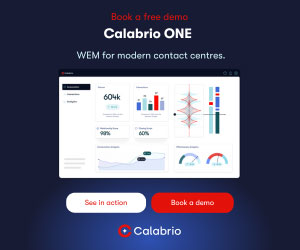Monitoring call centre quality assurance is an essential part of running a successful call centre. A call centre quality assurance solution gives managers the flexibility and range to review, analyze and understand their call centre operations, conduct quality monitoring, improve their effectiveness and identify areas where agents can improve.
Why Do You Need a Call Centre Quality Assurance Solution?
Quality assurance monitoring provides the data to measure whether the call centre is meeting goals, following correct processes, remaining compliant and achieving defined outcomes. Contact Centre QA enables managers to improve customer satisfaction and employee productivity by monitoring and tracking call centre activity.
Call centres are at the forefront of efforts by businesses to service and retain customers. In a recent survey, 73% of business leaders drew a direct link between their customer service and business performance.
The consequences of poor service were stark, with 61% of customers prepared to switch to a competitor after one bad experience, a figure that rose to 76% after two negative experiences.
Companies can combat this threat with analytics. Every interaction with a customer produces data that can be analyzed and used to alter behavior to help secure the relationship. Call centre performance data can provide insights to strengthen customer relationships and develop retention strategies.
QA in the call centre is a major component in managing customer expectations and loyalty, as well as the overall health of the business.
Why You Should Choose a Quality Assurance Solution as Part of Your Contact Centre Management
The call centre is critical for customer relationships in most businesses and those relationships can be strengthened by the behavior and performance of call centre agents. Most people judge a business by the interactions they have with the contact centre so companies must implement rigorous quality monitoring for long-term customer loyalty.
The future of the business may rest on the effectiveness of that quality monitoring, especially when it comes to harvesting insights that can improve overall call centre performance.
To deliver consistent quality customer experiences, businesses need to:
- Set quality goals for the call centre
- Create a quality monitoring scorecard
- Set pertinent parameters for scorecard development
- Train managers and agents
- Analyze calls for customer experience input
- Monitor quality scorecards for relevant adjustments
Spreadsheets Are Not Up to the Job
Call centre managers that rely on outdated methods of reporting can find their progress frustrated because it is hard to get clear reports if information is derived from several sources and entered manually. The margin for error can be significant and damaging to the business.
Spreadsheets cannot guarantee effective QA for several reasons:
- They are slow
- It is almost impossible to forecast with them
- They rely on built-in calculators to alter content with little to no flexibility
- It is difficult to manage multiple versions of the call centre quality assurance form template
- They don’t monitor employees effectively
- There’s too much potential for lost, corrupted, or incomplete data and reporting
- Sharing and collaborating is difficult and time consuming because data is not centrally stored for easy access
Scorecards eliminate the need for manual spreadsheets. By using scorecards to gauge agent performance, call centres can improve agent skills and increase customer satisfaction.
Scorecards contain all the metrics for agent performance in one place and managers can use them to make changes to boost customer satisfaction and revenue for the business, resulting in happier agents and better customer interactions.
Built-In QA Versus Purpose-Built QA
Scorecards are only as good as the system that creates them. With many call centre systems, the QA module can often appear close to an afterthought or a tick-box exercise.
For many businesses, QA may not be a top priority when it comes to purchasing a call centre system but it can have a profound effect on customer and agent retention. It is worth ensuring the QA solution lives up to the task.
Many built-in QA systems provide only limited scorecard creation options with very basic answer choices, outcomes and feedback that could be limited to a range of 1 to 5 or only 3 stars. Basic scorecards can only capture limited data which restricts the reporting capability of the system.
If you only have basic data and feedback, you will have limited insights from which to make decisions about agent performance and engagement.
The level of detail you can capture and the ability to report on that detail is important when it comes to helping agent engagement and retaining agents. Limited feedback makes it harder to provide the best direction and coaching for agents.
Poorly coached agents can have a detrimental effect on Customer Satisfaction Score (CSAT) and Net Promoter Score (NPS) ratings, affecting the company’s bottom line. Agents can become disillusioned and leave. Losing staff is an expensive process and they can be hard to replace.
These limitations can be exacerbated as your company grows. Purpose-built QA is far less likely to be subject to the same restrictions and limitations of a built-in system.
Call centres can get more from purpose-built QA systems by creating more complex scorecards that will provide much better feedback to agents. Call centre managers can:
- Save time on evaluation
- Reduce the time taken to compile reports
- Deliver meaningful and insightful results to agents
- Provide a method for agents to challenge those results
- Empower agents
- Improve staff retention
- Save time on meetings.
This blog post has been re-published by kind permission of Scorebuddy – View the Original Article
For more information about Scorebuddy - visit the Scorebuddy Website
Call Centre Helper is not responsible for the content of these guest blog posts. The opinions expressed in this article are those of the author, and do not necessarily reflect those of Call Centre Helper.
Author: Scorebuddy
Published On: 1st Mar 2022 - Last modified: 27th Apr 2022
Read more about - Guest Blogs, Scorebuddy






 Scorebuddy is quality assurance solution for scoring customer service calls, emails and web chat. It is a dedicated, stand-alone staff scoring system based in the cloud, requiring no integration.
Scorebuddy is quality assurance solution for scoring customer service calls, emails and web chat. It is a dedicated, stand-alone staff scoring system based in the cloud, requiring no integration. 





























